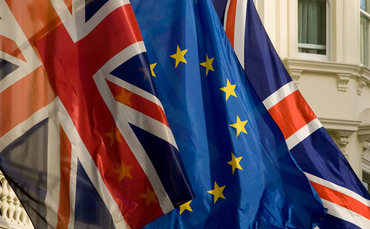How European Companies are Adopting IFRS
“The decision of the Commission of the European Union (EU) to oblige listed European companies…to establish their consolidated financial statements according to IFRS (IAS) represents a preliminary peak in the internationalisation process of financial accounting in Europe” (Haller and Kepler, 2002).
The need for Harmonization:
The activities of companies extend beyond national frontiers and shareholders and other stakeholders need protection throughout the EU. And in order to achieve this and to encourage the movement of capital, it is necessary to create a flow of reliable homogeneous financial information about companies from all parts of the EU. And they further argue that since companies in different EU countries exist in the same form and are in competition with each other, they should be subject to the same laws and taxation.
Obstacles for harmonization in the EU:
The obstacles for harmonization are the fundamental differences between the contexts and purposes of the various national accounting systems in the EU.
And the main differences are:
- Differences between creditor/secrecy in the traditional Franco-German systems and investor/disclosure in the Anglo-Dutch systems
- Differences between law/tax-based rules and private sector standards
These difference shave contributed towards the great variations in the size and strength of the accountancy profession.
Here are some social-cultural related problems that IFRS can encounter by its implementation in various countries:
- One of the most crucial issues is the lack of strong professional bodies in some countries to promote the harmonization. The bodies such as IASC (International Accounting Standards Committee). Due to lack of these professional bodies, there will be less guidance to follow and support available.
- Another point is the degree of professional education and training systems for accounting. Education and training systems in developed and western countries are more professional than in developing countries. Therefore, the accountants in these countries will be sooner familiar with the new international standards than accountants in countries where the education degree of accountants is lower.
- The cultural attitude towards professional groups can be a source of issue too. in countries where there is a negative attitude towards the professionals groups, the acceptance of international regulations and standards as required by IFRS may be difficult to accept. Therefore, the flexibility of IFRS is another key issue which may either accelerate or slow down the implementation of this reporting standard internationally.
Adoption of IFRS in the EU:
The EU has been the world’s most powerful source of change towards regional harmonization. And the EU committee sees the harmonization of accounting as one of the best tools to remove the trading barriers in the EU.
The Fourth Directive
The Fourth Directive was adopted by the EU in 1978 and it had two strategic objectives to achieve. First objective of IFRS has been to eliminate needless legal and bureaucratic obstacles to economic activity within the EU by coordinating company law in member nations. The second objective is to create a minimum level of comparability among financial statements throughout the European Union by establishing basic reporting standards and acceptable financial statement formats.
The central focus and most discussed point in the Fourth Directive are the True and Fair View. According to the Fourth Directive, the companies that prepare financial statements should ignore any provision therein if compliance with that provision would conflict with presentation of a true and a fair view of a company’s financial position and income.
Therefore, it can be stated that even though the adoption of the Fourth Directive has been more than 2 decades, it is still broadly discussed. And this directive has had significant impact on reporting standards in Europe.
The Seventh Directive
The Seventh Directive was adopted in 1983 and this directive has had a significant impact on the consolidation of the financial statements. To comply with the Seventh Directive the EU member states are required to enact legislation in EU nations. Moreover, the Seventh Directive also helps to decide as who must prepare financial statement.
Member states may exempt financial holding companies from consolidation requirements if the company to be exempted can show that it has not influenced the management decisions of its subsidiaries for the past year and has not influenced the appointment of any directors or management personnel for the past five years.
References
Haller, A. and Kepler, J. 2002. “Financial accounting developments in the European Union: past events and future prospects.”The European Accounting Review

